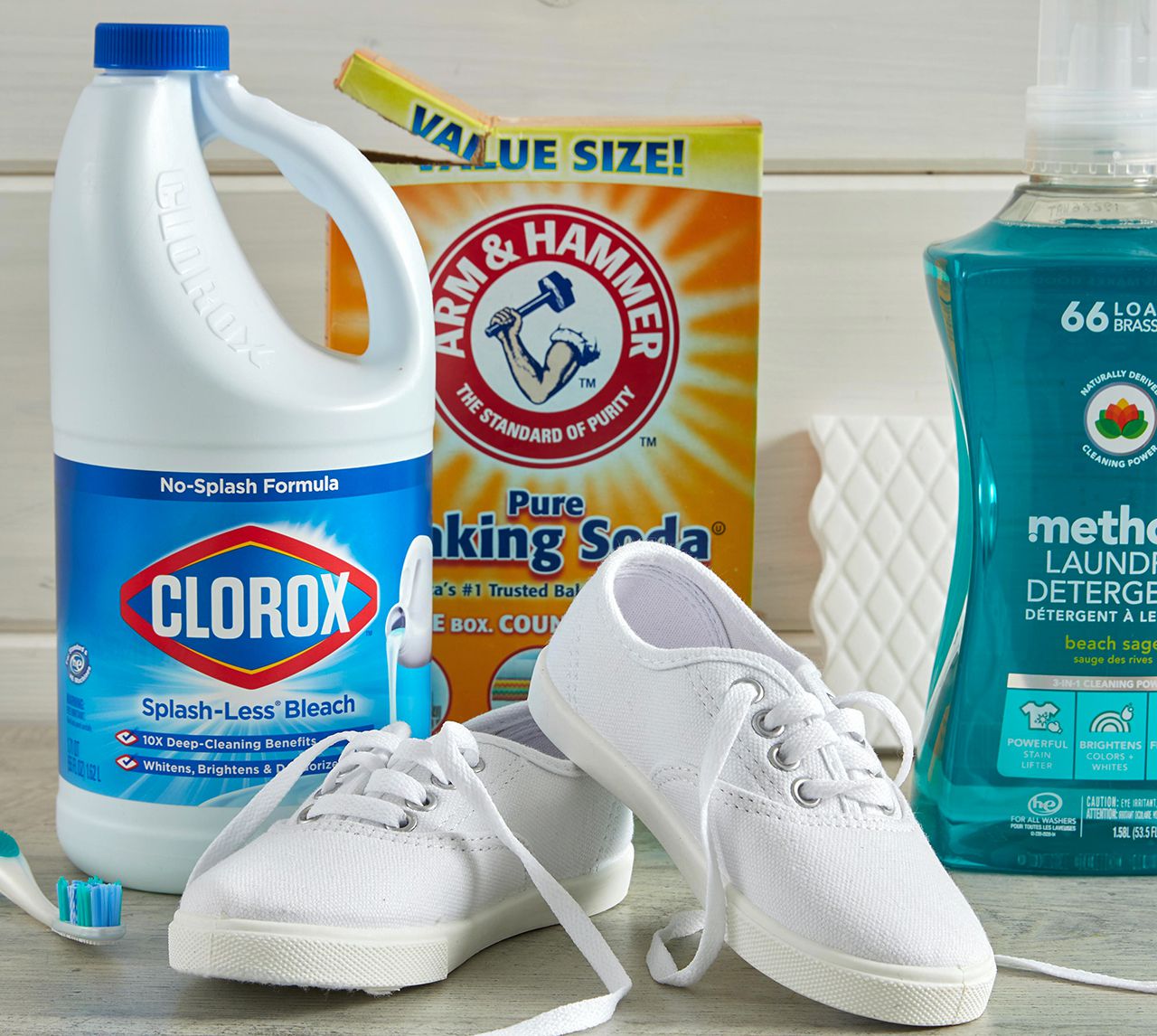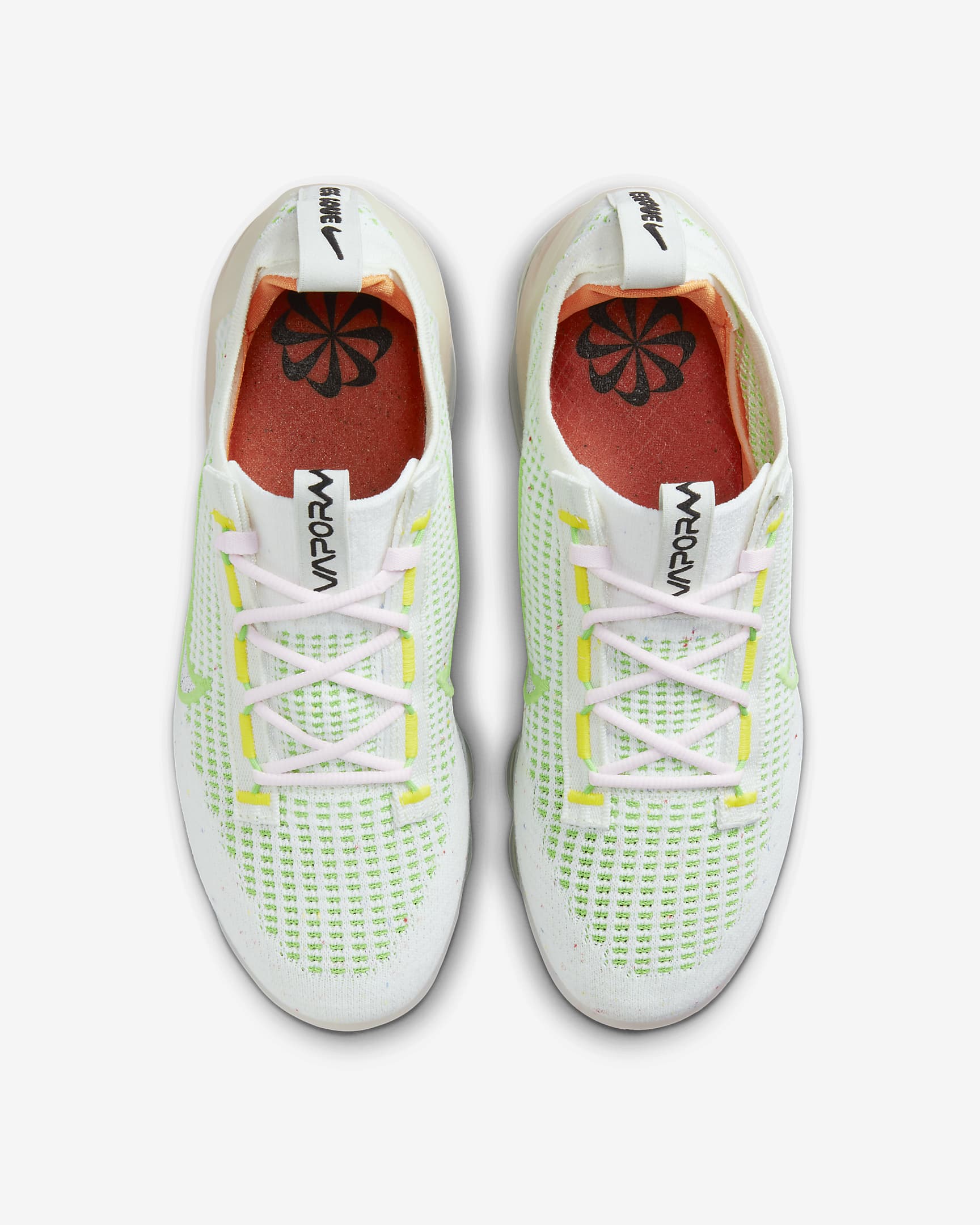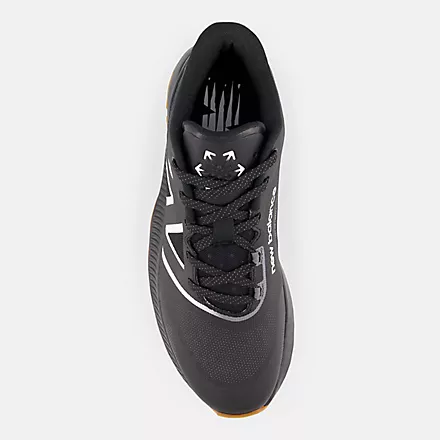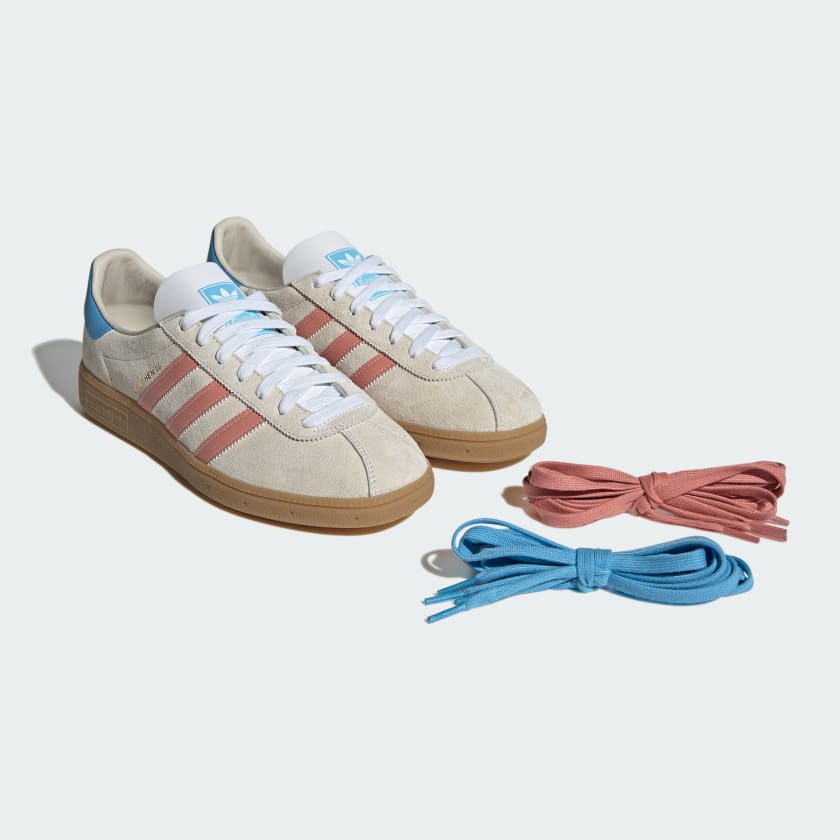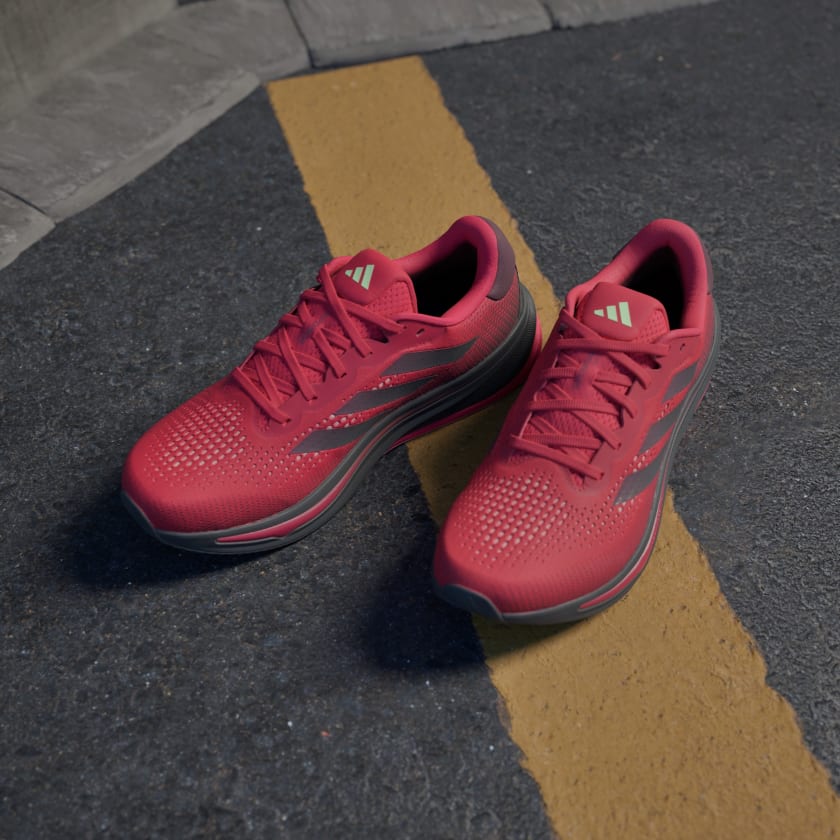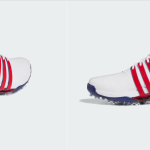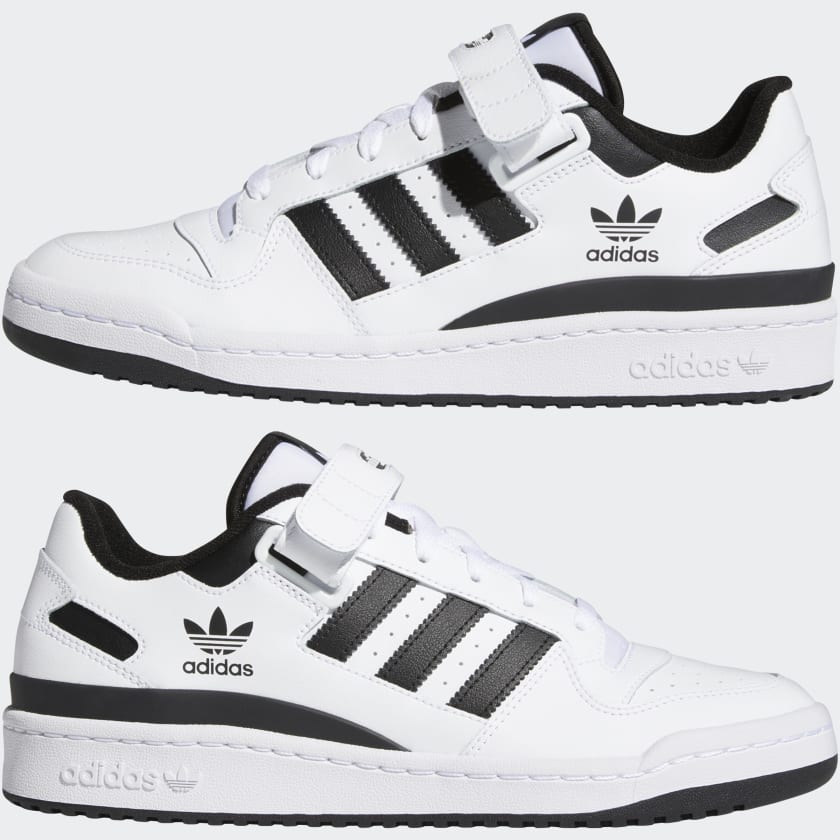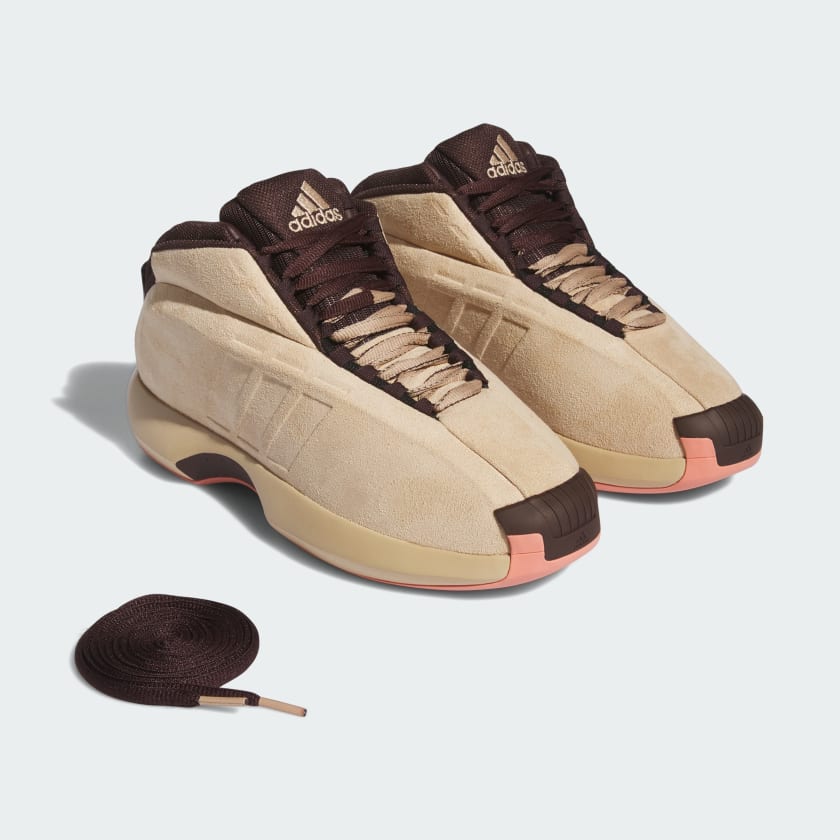To clean shoes effectively, use a brush like a toothbrush or nail brush with a white microfiber cloth. For leather shoes, try a mixture of white vinegar and baking soda.
For patent leather, use Windex and petroleum jelly. Avoid using excessive water or detergent, as this can damage shoes. It’s best to wipe away dirt gently with a damp cloth. When washing shoes, use a gentle, cold water cycle with a slow spin setting and remove laces and insoles.
This helps maintain the shoes’ condition and protects your washing machine. By following these tips, you can keep your shoes looking fresh and clean without causing any damage.
Introduction To Shoe Cleaning
When it comes to keeping your shoes looking their best, regular cleaning is essential. Not only does it help maintain their appearance, but it also extends their lifespan. Understanding the best ways to clean different types of shoes is crucial to ensure that you are using the right methods and products for each material.
Why Clean Shoes Matter
Clean shoes not only look better, but they also last longer. Regular cleaning helps to remove dirt, grime, and bacteria that can cause damage to the materials. It also helps to prevent discoloration and deterioration, keeping your shoes in top condition for longer.
Common Shoe Materials And Their Cleaning Needs
Different shoe materials require different cleaning methods and products to ensure that they are properly cared for. Here’s a quick overview of some common shoe materials and their specific cleaning needs:
- Leather: Use a gentle leather cleaner and conditioner to remove dirt and maintain the softness and luster of the leather.
- Suede: Use a suede brush to gently remove dirt and stains, and consider using a specialized suede cleaner for tougher stains.
- Canvas: A mild detergent and water solution can be used to gently scrub away dirt and stains, while being careful not to saturate the material.
- Mesh and Fabric: These materials can often be cleaned with a gentle detergent and water, but be sure to check the manufacturer’s recommendations.
- Rubber/Plastic: A simple wipe down with a damp cloth or mild soap and water solution is usually sufficient for these materials.
Basic Shoe Cleaning Tools
When it comes to cleaning your shoes, having the right tools can make all the difference. Here are some essential tools you should have in your shoe cleaning kit:
Brushes: Types And Uses
Brushes are a crucial tool for removing dirt and debris from your shoes. Different types of brushes serve different purposes:
- Soft-bristled brush: Ideal for delicate materials like suede or nubuck.
- Stiff-bristled brush: Perfect for removing stubborn dirt from leather or rubber.
- Wire brush: Great for cleaning the soles of your shoes.
Cloths And Sponges For Gentle Cleaning
Cloths and sponges are essential for gentle cleaning and polishing of your shoes:
- Microfiber cloth: Use for wiping down shoes without causing damage.
- Soft sponge: Ideal for applying cleaning solutions to your shoes.
- Lint-free cloth: Perfect for buffing and shining leather shoes.
Diy Shoe Cleaning Solutions
Natural Cleaners: Vinegar And Baking Soda
When it comes to cleaning your shoes using natural ingredients, vinegar and baking soda are two of the most effective solutions. They are not only eco-friendly but also great at removing dirt and odors from your shoes.
Homemade Pastes And Sprays
If you’re looking for homemade solutions to clean your shoes, making pastes and sprays can be a game-changer. You can create a paste using ingredients like baking soda and water, or mix vinegar with water in a spray bottle for a quick and easy cleaning solution.
Commercial Shoe Cleaners
When it comes to keeping your shoes looking fresh and clean, commercial shoe cleaners are a convenient and effective option. These products are specially formulated to remove dirt, stains, and grime from a variety of shoe materials, helping to prolong the life of your favorite footwear.
Best Brands On The Market
When evaluating the best commercial shoe cleaners, it’s important to consider the reputation of the brand. Some of the top brands on the market known for their effective shoe cleaning products include:
- Jason Markk: Renowned for its premium shoe care solutions, Jason Markk offers a range of high-quality cleaners suitable for various shoe materials.
- Reshoevn8r: This brand is popular for its innovative cleaning kits and solutions designed to tackle tough stains and maintain the condition of your shoes.
- Crep Protect: Known for its advanced protective sprays and cleaning products, Crep Protect is a go-to choice for sneaker enthusiasts.
Evaluating Cleaner Ingredients
When choosing a commercial shoe cleaner, it’s essential to consider the ingredients to ensure they are safe and effective for your specific shoe material. Look for cleaners that contain:
- Gentle detergents: Opt for cleaners with mild, non-abrasive detergents that can effectively lift dirt without damaging the shoe material.
- Natural solvents: Ingredients such as vinegar, citrus extracts, and plant-based solvents can provide effective cleaning power while being gentle on the environment.
- Conditioning agents: Some cleaners include conditioning properties to nourish leather, suede, and other delicate materials, helping to maintain the softness and flexibility of the shoes.
Machine Washing Vs. Hand Washing
When it comes to cleaning shoes, the debate between machine washing and hand washing has been ongoing. Each method has its own set of advantages and disadvantages, and the decision often depends on the material and condition of the shoes. Let’s take a closer look at the pros and cons of machine washing and the steps for safe hand washing.
Pros And Cons Of Machine Washing
Machine washing offers convenience and efficiency, especially for busy individuals. However, it is essential to consider the material of the shoes before opting for this method. While it can effectively clean sturdy sneakers and canvas shoes, it may not be suitable for delicate or leather footwear. Moreover, machine washing may cause damage or alteration to the shape of the shoes, particularly if they have intricate designs or embellishments.
Steps For Safe Hand Washing
Hand washing provides a more gentle approach to cleaning shoes, allowing for better control and precision. It is particularly beneficial for shoes made of sensitive materials such as leather, suede, or mesh. To hand wash shoes safely, follow these steps:
- Remove the laces and insoles from the shoes.
- Prepare a cleaning solution by mixing mild detergent with warm water.
- Use a soft-bristled brush or cloth to gently scrub the shoes, focusing on stained areas.
- Rinse the shoes thoroughly with cold water to remove any soap residue.
- Stuff the shoes with paper towels and allow them to air dry away from direct heat or sunlight.
By following these steps, you can effectively clean your shoes without risking damage or alteration to their appearance.
Special Care For Different Shoe Types
Special care for different shoe types is essential to maintain their quality and extend their lifespan. Each type of shoe material requires specific cleaning methods to ensure they remain in top condition. Whether it’s leather, suede, athletic, or canvas shoes, understanding the best cleaning practices for each type is crucial. Let’s explore the specific care required for different shoe types.
Leather And Suede Maintenance
When it comes to leather shoes, regular cleaning and conditioning are vital. Use a soft-bristled brush to remove dirt and dust. For suede shoes, avoid water as it can damage the material. Instead, use a suede brush to gently remove stains and maintain the texture. Additionally, consider using a protective spray to guard against moisture and stains.
Athletic And Canvas Shoes Cleaning
Athletic and canvas shoes require gentle care to preserve their appearance and functionality. Remove the laces and insoles before cleaning. Use a mixture of mild detergent and water to spot clean the shoes. Avoid using high-pressure hoses as they can drive dirt deeper into the material. For machine washing, place the shoes in a mesh bag on a gentle, cold water cycle with no-spin setting.
Protecting Your Shoes Post-cleaning
To protect your shoes post-cleaning, the best thing to use is a white microfiber cloth for gentle wiping. Avoid excessive water or detergent to prevent damage, and opt for a soft brush or cloth for effective cleaning.
After cleaning your shoes, it’s crucial to take steps to protect them from future damage. By implementing waterproofing techniquesstain prevention tips, you can extend the lifespan of your favorite footwear.
Waterproofing Techniques
waterproofing spray specifically designed for the material of your shoes. Apply the spray in a well-ventilated area and allow it to dry completely before wearing your shoes in wet conditions.
Stain Prevention Tips
stain repellent spray. This can help create a protective barrier against spills and dirt. Additionally, be proactive in cleaning spills immediately to prevent stains from setting in. In summary, safeguarding your shoes post-cleaning is essential to maintain their appearance and longevity. By incorporating waterproofing techniques and stain prevention tips, you can keep your shoes looking fresh and stylish for longer.

Credit: www.nytimes.com
Troubleshooting Common Issues
When it comes to cleaning shoes, you may encounter some common issues such as tough stains, persistent odors, and minor damage. Here are some effective troubleshooting tips to help you address these problems and keep your shoes looking fresh and clean.
Removing Tough Stains And Odors
To remove tough stains and odors from your shoes, consider using the following methods:
- For fabric shoes, create a paste using baking soda and water, and gently scrub the affected areas with a soft brush.
- For leather shoes, use a mild soap and water solution to clean the surface, then apply a leather conditioner to restore moisture and shine.
- To eliminate odors, sprinkle baking soda inside the shoes and let them sit overnight before shaking out the powder.
- For stubborn odors, place activated charcoal or dry tea bags inside the shoes to absorb unwanted smells.
Repairing Minor Damage After Cleaning
If you notice minor damage to your shoes after cleaning, you can take the following steps to repair them:
- For scuffed leather shoes, use a leather conditioner and a soft cloth to buff out the marks.
- For loose or detached soles, apply a strong adhesive specifically designed for shoe repair and press the sole firmly back into place.
- If the laces are frayed or damaged, consider replacing them with new, high-quality laces that complement your shoes.
Sustainable Shoe Cleaning Practices
To clean shoes effectively, consider using a toothbrush, nail brush, or white microfiber cloth. For different materials like leather or suede, try solutions like white vinegar and baking soda or vinegar and rubbing alcohol. Avoid excessive water and detergent to prevent shoe damage.
Eco-friendly Products And Methods
Keeping our shoes clean is a must, but we should also consider the impact of our cleaning practices on the environment. Using eco-friendly shoe cleaning products and methods is a great way to start. Instead of using harsh chemicals and toxic substances, we can opt for natural and biodegradable products.
For instance, white vinegar and baking soda can be used to clean leather shoes, while vinegar and rubbing alcohol can be used for suede and sheepskin shoes. Other eco-friendly options include using a soft-bristled brush or a microfiber cloth to clean shoes.
Minimizing Water And Chemical Use
Another sustainable shoe cleaning practice is minimizing water and chemical use. Too much water and detergent can damage our shoes and harm the environment. Instead, we can use a damp cloth to gently wipe away dirt and use minimal amounts of detergent if necessary. We can also try using a shoe cleaning powder made from natural ingredients, such as baking soda, cornstarch, and essential oils.
This not only minimizes water and chemical use but also reduces plastic waste from purchasing new cleaning products. To sum up, sustainable shoe cleaning practices are essential to reduce our impact on the environment. By choosing eco-friendly products and methods and minimizing water and chemical use, we can keep our shoes clean and protect our planet.
/shoes-in-washing-machine-GettyImages-1401958599-bb2e36b524d04ea293f5fdd92865cc41.jpg)
Credit: www.realsimple.com
Expert Advice And Additional Resources
For expert advice and additional resources on cleaning shoes, consider using a gentle brush or a toothbrush for general cleaning. White vinegar and baking soda work well for leather shoes, while avoiding excessive water and detergents to prevent damage. Explore DIY solutions like natural cleaners for different shoe materials.
Tips From Shoe Care Professionals
Shoe care professionals recommend using a gentle brush or toothbrush to clean shoes effectively. Avoid high-pressure hoses and excessive water to prevent damage.
Online Guides And Tutorials
Online tutorials suggest DIY solutions like using white vinegar for leather shoes and vinegar with rubbing alcohol for suede and sheepskin shoes. Remember to wash shoes in cold water with gentle detergent.
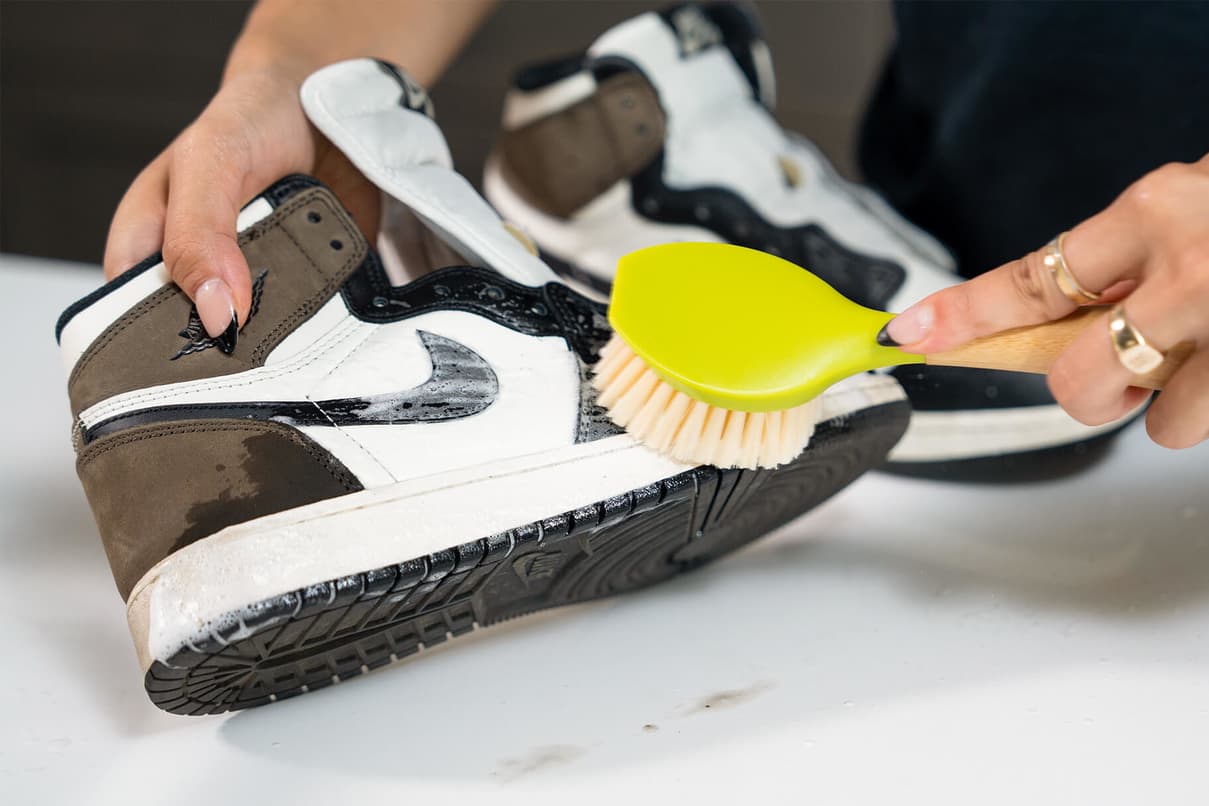
Credit: www.nike.com
Frequently Asked Questions
What Is The Best Thing To Clean Shoes With?
The best thing to clean shoes with is a brush, such as a toothbrush or nail brush, for general cleaning. For leather shoes, white vinegar and baking soda work well, while Windex and petroleum jelly are good for patent leather.
Vinegar and rubbing alcohol can clean suede and sheepskin shoes. Avoid using too much water or detergent and high-pressure hoses, and use a damp cloth with minimal detergent if necessary. Hand washing and air drying is the best cleaning method for some shoes.
What Not To Use To Clean Shoes?
Avoid using too much water or detergent, high-pressure hoses, and harsh chemicals, as they can ruin your shoes. Instead, use a damp cloth with minimal detergent, and gently wipe away dirt to keep your shoes in good condition.
What Is The Best Way To Clean Shoes Diy?
To clean shoes DIY, use a brush or toothbrush, nail brush, or microfiber cloth. For leather, try white vinegar and baking soda. Avoid too much water or detergent and high-pressure hoses. Wash gently in cold water with laces removed. Hand wash and air dry for best results.
How Do You Wash Shoes Without Ruining Them?
To wash shoes without ruining them, use a gentle, cold water cycle with a slow or no-spin setting. Place them in a closed mesh bag with laces and insoles removed. Avoid high-pressure hoses and excessive detergent. Hand washing and air drying is best for delicate shoes.
Conclusion
To keep your shoes looking fresh, use a gentle approach with the right tools. Whether it’s a toothbrush for stains or vinegar for leather, proper care is key. Avoid harsh methods that could damage your shoes. Remember, a little TLC goes a long way in maintaining your footwear.
